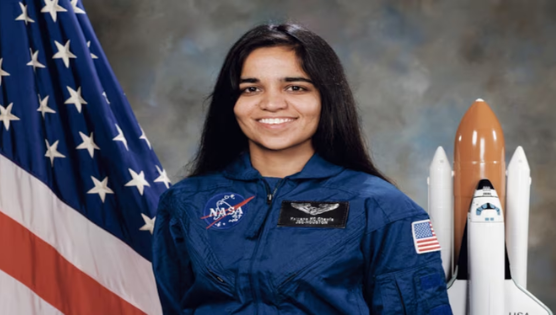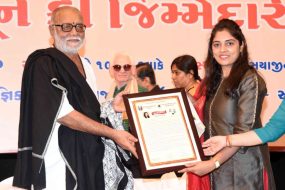
Millions of people all around the world are still inspired by Kalpana Chawla, a name inscribed in the annals of space exploration, because of her unrelenting enthusiasm and tenacious spirit. Kalpana was born on March 17, 1962, in Karnal, India. Her remarkable journey from a small town girl to the first Indian woman in space is a monument to the human spirit and the ability to pursue aspirations in the face of adversity.
Since her early years, Kalpana has shown an unquenchable curiosity about the universe. She frequently looks up at the night sky and daydreams about unravelling its secrets. Her academic prowess enabled her to graduate from Punjab Engineering College in Chandigarh with a Bachelor of Engineering degree in Aeronautical Engineering. Motivated by her goals, she continued her education in the United States, earning a Ph.D. in the same field from the University of Colorado after earning a Master’s degree in Aerospace Engineering from the University of Texas.
Kalpana’s unwavering dedication to perfection brought her a successful career at NASA, where she played a key role in multiple ground-breaking projects. When she was chosen for the NASA Astronaut Corps in 1997, her incredible voyage beyond Earth’s boundaries officially began.
Her first mission, STS-87, aboard the Space Shuttle Columbia in 1997, showcased her exceptional skills as a mission specialist. However, it was her second voyage, aboard the ill-fated STS-107 mission in 2003, that immortalized her in history. Tragically, on February 1, 2003, the Space Shuttle Columbia disintegrated upon re-entry into Earth’s atmosphere, claiming the lives of all seven crew members, including Kalpana Chawla.
The legacy of Kalpana extends beyond her physical life. She served as an inspiration to generations of people, encouraging them to follow their aspirations with unwavering courage, resiliency, and curiosity. Her accomplishments and life serve as an inspiration to millions, particularly young girls, to reject social conventions and aim high.
Numerous organizations, medals, and scholarships have been created globally in her honor, promoting scientific research and education, especially in the areas of aerospace engineering and space exploration. The United States Congress further recognized Kalpana Chawla’s lasting impact and her contribution to the progress of space exploration in 2004 when they passed the Kalpana Chawla Memorial Space Fellowship Act.
Beyond her achievements in her career, Kalpana’s generosity, modesty, and contagious energy had a lasting impression on everyone she came into contact with. Her life was a living example of the idea that there is no ceiling—rather, the sky is only the start of an endless journey of human potential and accomplishment.
In keeping with Kalpana Chawla’s immortal words, “The path from dreams to success does exist,” let us renew our dedication to the quest of knowledge, discovery, and the unwavering pursuit of our dreams as we honor her life and legacy. May you possess the foresight to recognize it, the bravery to pursue it, and the tenacity to do so.”










